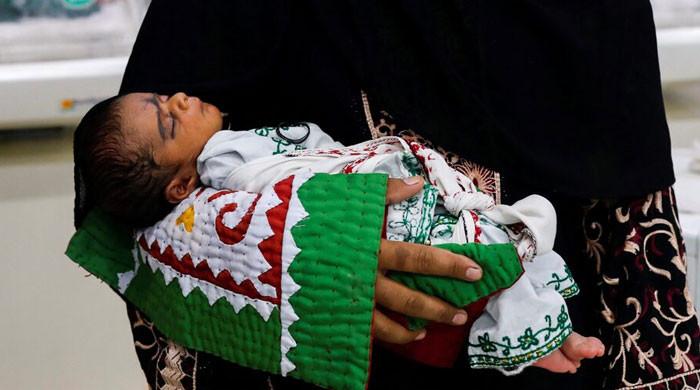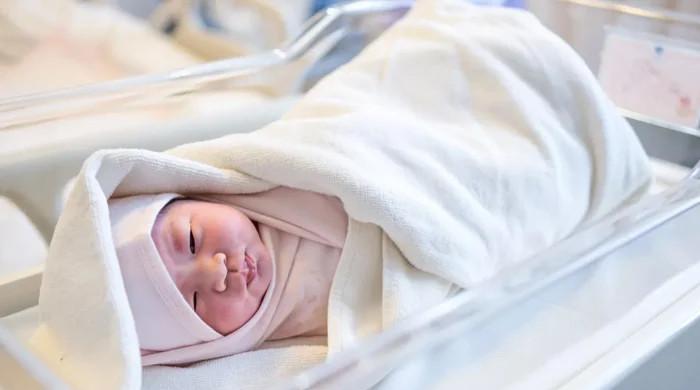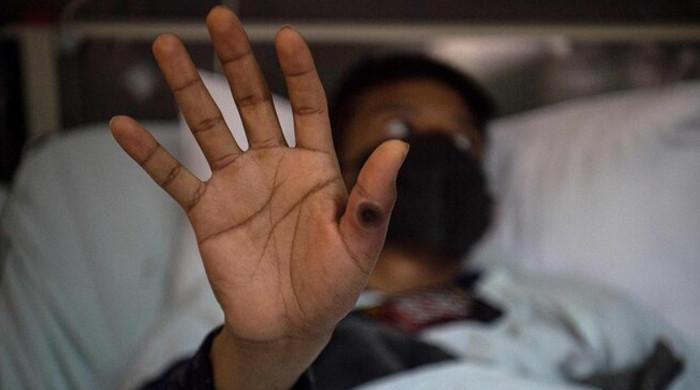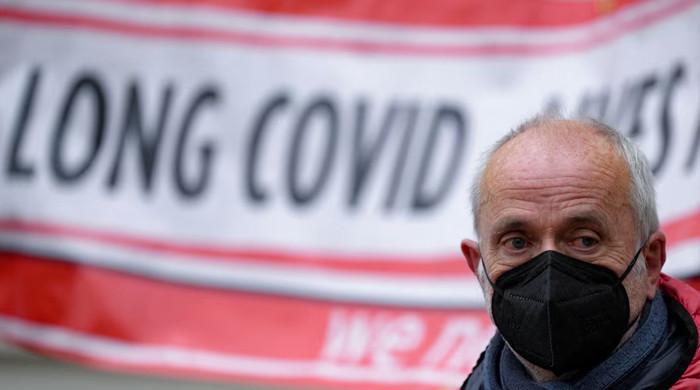182 COVID-19 patients with mild or no symptoms in Sindh have died over past 3 months
Around 31,000 people are in self-isolation and their well-being has become a major cause for concern for us, according to a Sindh govt official
June 22, 2020
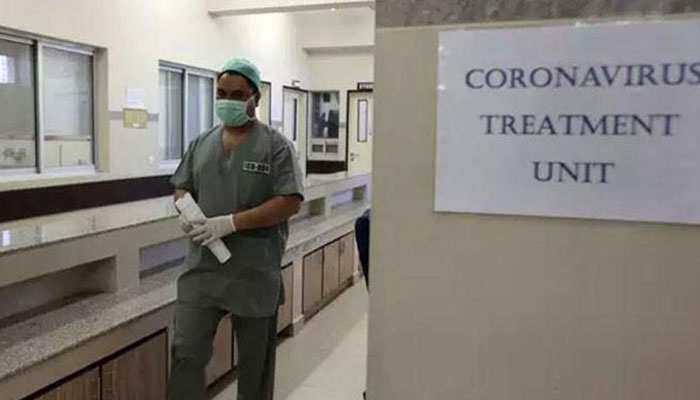
Asymptomatic coronavirus patients continue to die in their homes in Sindh, with 182 people having mild symptoms or none at all, who were advised to self-isolate at home, have passed away in the past three months before being able to reach a health facility, reported The News.
“These patients had been asked to stay at home for at least two weeks so that they could not infect healthy people on the streets,” an official of the Sindh government, who requested anonymity, said on Sunday.
He said Sindh had recorded its first death on March 19, and 1,013 people had died across the province by June 19. Around 18%, or 182, of them, died in their homes without being able to reach any health facility, he added.
“Majority of these people — around 170 — lost their lives in Karachi alone. These people were staying at home because they had no or mild symptoms after testing positive, but most of them suddenly collapsed and died before reaching any health facility.”
So far, 69,633 people have tested positive for the novel coronavirus in Sindh, and 30,705 of them are observing self-isolation because the majority of them are either asymptomatic or showing mild symptoms and so do not require hospitalisation.
The official said deaths of patients at home has become a serious cause for concern for the authorities because all the COVID-19 treatment facilities are packed to capacity, so now people have nowhere to go to seek medical assistance in case of an emergency.
“Between 2,500 and 2,800 people are testing positive daily in Sindh. On the other hand, the number of people contracting the disease daily but unable to get tested is in the thousands. Around 31,000 people are in self-isolation, and their well-being has become a major cause for concern for us.”
Deaths at hospitals
The official said that following the 182 deaths of those in self-isolation, the Jinnah Postgraduate Medical Centre has recorded the highest number of COVID-19 deaths at 124 since March 19, followed by 104 deaths at the Dr Ruth KM Pfau Civil Hospital Karachi.
“Ninety-six patients have died at the Sindh Institute of Urology & Transplantation while 95 at the Ojha Campus of the Dow University of Health Sciences.”
In the private sector, the Aga Khan University Hospital has recorded the highest number of COVID-19 deaths at 87 until June 19, followed by 83 deaths at the Indus Hospital and 57 at the Dr Ziauddin Hospital, added the official.
He said that 30 patients each have lost their lives at the Shaheed Mohtarma Benazir Bhutto Trauma Centre and the Lyari General Hospital, while 15 others have died at the PNS Shifa Hospital and 10 at the Liaquat National Hospital.
The South City Hospital has lost nine COVID-19 patients, while the Tabba Heart Institute has lost six patients brought in to for the treatment of cardiac ailments, he added.
Why are they dying?
“The condition of COVID-19 patients who are healthy and asymptomatic deteriorates so rapidly that they require ventilator support, but since it’s impossible at home, they die without reaching a health facility,” said pulmonologist Prof Dr Javed Khan.
He said that cytokine release syndrome, or commonly known as cytokine storm, which is the immune response of the human body in COVID-19 and other respiratory illnesses, could suddenly deteriorate the health of patients and they could require life support.
“Patients in self-isolation are also dying due to pulmonary embolism, in which blood clots are formed and they travel to the lungs, where they block them and people die due to respiratory failure,” said Dr Khan, adding that blood clots could also result in major strokes and heart attacks in COVID-19 patients.
Dr Usman Ghani, a consultant stroke physician at England’s University Hospitals Coventry & Warwickshire, said that COVID-19 patients are at high risk for thromboembolic disorders (blood clots in lungs) due to infection and inflammation.
“If they remain immobile for a long period of time or become dehydrated because of diarrhoea associated with the use of Sana Makki, chances of having blood clots go up. They need intravenous fluids [drip] to maintain their fluid status and blood thinning injections [anticoagulation] to prevent and dissolve the blood clots.”
He said that if these patients have a persistent temperature and cough leading to respiratory difficulties, they need immediate medical treatment. “They are likely to have an infection in the lungs or low oxygen levels, which can be checked only by doing a chest X-ray and arterial blood gases.”
Dr Ghani said that if these patients start getting chest pains or palpitations, they need to be checked for cardiac complications of COVID-19.
“Heart attacks [MI], cardiac arrhythmias leading to heart block, inflammation around the heart [pericarditis] and heart failure can happen post-COVID-19, leading to death if not checked immediately. They need to attend a hospital as well as get an ECG, heart enzymes blood test [troponins] and echocardiogram [ultrasound scan of heart].”
People are afraid of coming to hospitals: Sindh health minister
Sindh Health Minister Dr Azra Pechuho said that people were afraid of coming to hospitals and were not providing information to authorities. She confirmed that as of now, 182 COVID-19 patients with mild symptoms have died across the province.
The minister said that most patients were dying in their homes from heart attacks and breathing complications. "The department of health prepares statistics. Our teams are in contact with people," she said.
She said that the government was providing ventilators and HDU equipment to patients.
Originally published in The News





